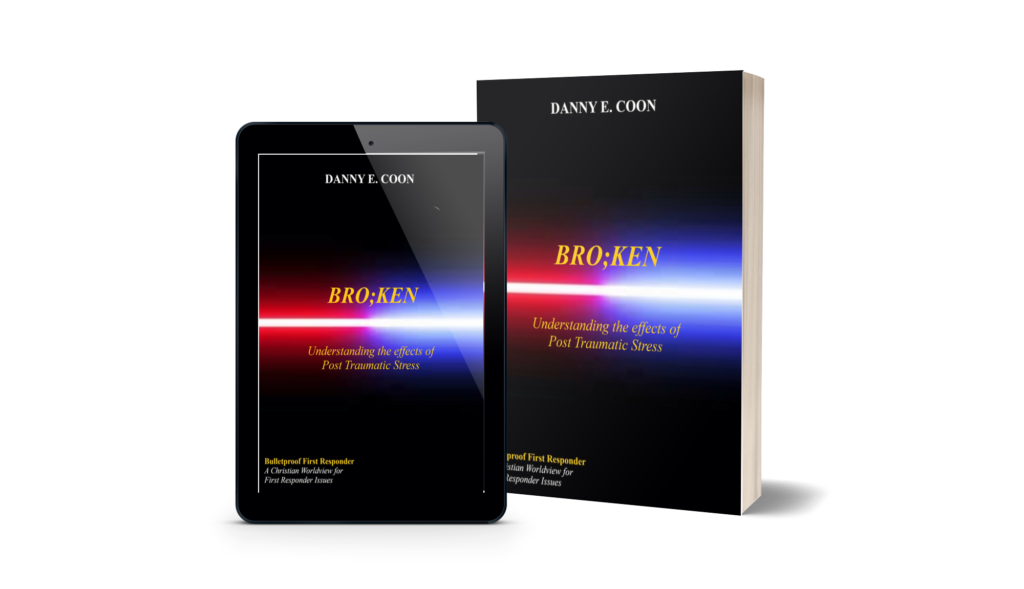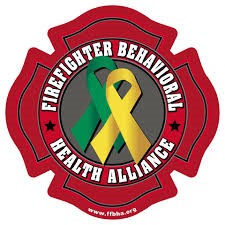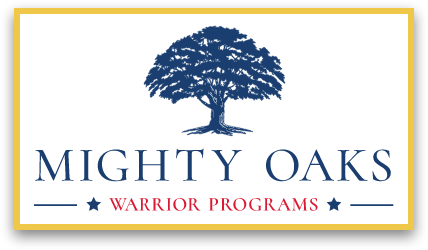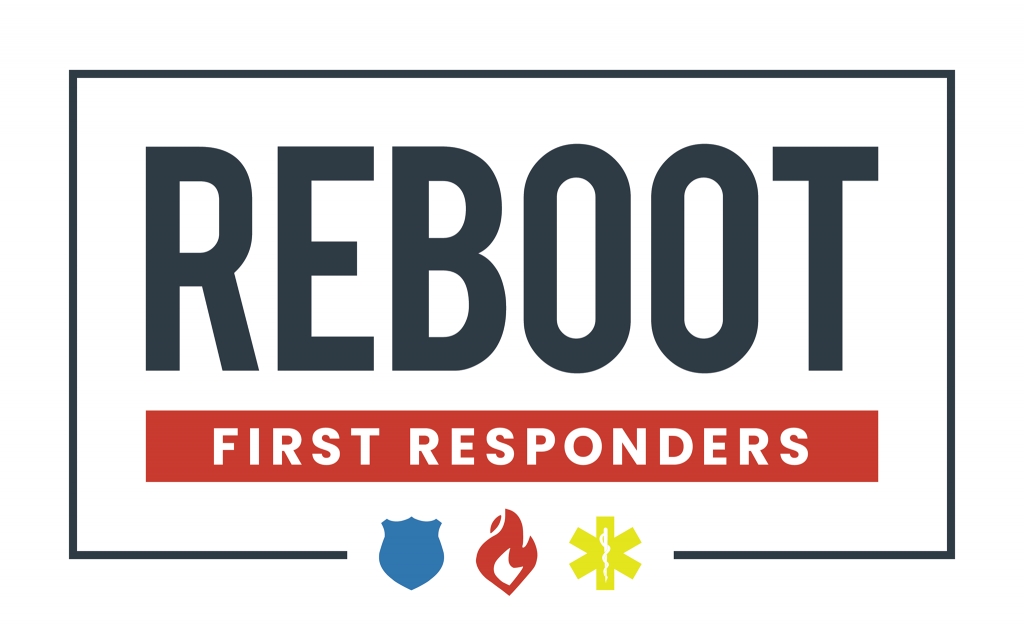Recovery After the Trauma – Post Traumatic Growth
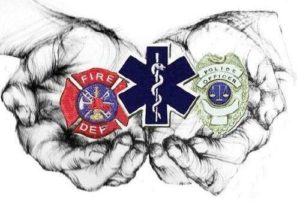 The American Psychiatric Association defines Post-Traumatic Stress Disorder (injury) as “a psychiatric disorder.” “PTSi occurs in people who have experienced or witnessed a traumatic event such as a natural disaster, a serious accident, a terrorist act, war/combat, rape, or other violent personal assault.”[1] While this is a modern-day definition, PTSi has been around since the beginning of humankind.
The American Psychiatric Association defines Post-Traumatic Stress Disorder (injury) as “a psychiatric disorder.” “PTSi occurs in people who have experienced or witnessed a traumatic event such as a natural disaster, a serious accident, a terrorist act, war/combat, rape, or other violent personal assault.”[1] While this is a modern-day definition, PTSi has been around since the beginning of humankind.
8We do not want you to be uninformed, brothers and sisters, about the troubles we experienced in the province of Asia. We were under great pressure, far beyond our ability to endure, so that we despaired of life itself. 9 Indeed, we felt we had received the sentence of death. But this happened that we might not rely on ourselves but on God, who raises the dead.
2 Corinthians 1:8-9 NIV
From Abraham, Job, Moses, King David, and the Apostle Paul, it is well documented that each of these men suffered from PTSi. In A.D. 56, in his second letter to the Corinthians, Paul wrote about the conditions he and his followers endured, 2 Corinthians 1:8-9. Paul wrote about the great affliction, the unbearable stress they suffered. He wrote that they could not “cope” with the situations given to them; they were so distressed; they began to feel hopeless, helpless, and without-a-way. They thought that they were going to die! Paul realized that God put him in this situation to force him and his followers to trust in God.
Paul’s suffering in Asia was not the only time he was stressed and despaired. In a previous Epistle to the Romans, Paul wrote,
3Not only so, but we also glory in our sufferings, because we know that suffering produces perseverance;
4perseverance, character; and character, hope.
Romans 5:3-4 NIV
The cornerstone for Christians is the belief that Jesus suffered, died, and rose again, saving us from all of our sins. Christians celebrate and embrace that concept; however, it is hard for Christians to accept that they may experience suffering.
The good news is the PTSi that Paul suffered turned into Post-Traumatic Growth in Christ by the power of God. Therefore, Christians participating in the suffering of Jesus Christ can experience an opportunity for personal growth. Paul tells us,
3Praise be to the God and Father of our Lord Jesus Christ, the Father of compassion and the God of all comfort, 4who comforts us in all our troubles, so that we can comfort those in any trouble with the comfort we ourselves receive from God. 5For just as we share abundantly in the sufferings of Christ, so also our comfort abounds through Christ.
2 Corinthians 1:3-5 NIV
First appearing in a publication in 1995, Post-Traumatic Growth (PTG) can be defined as; “life-changing psychological shifts in thinking and relating to the world, that contributes to a personal process of change, that is deeply meaningful.”[2]
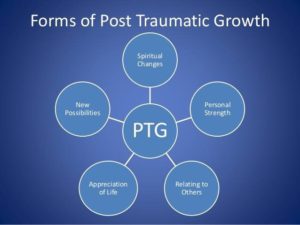
photo courtesy of Phoenix Center for Experiential Trauma Therapy
In their book “Facilitating Post-Traumatic Growth,” researchers Richard Tedeschi Ph.D. and Lawrence Calhoun Ph.D. wrote; “Post-traumatic growth is the positive change that the individual experiences as a result of the struggle with a traumatic event.”
Not to be confused with resilience, PTG is what happens when a person has difficulty in bouncing back and ultimately finds a sense of personal growth.
Tedeschi and Calhoun have identified five aspects of Post Traumatic Growth to reflect on:
- Spiritual Changes
- Personal Strength
- Relating to others
- Appreciation of life
- New possibilities
Some Christian researchers believe that the area of “Spiritual Changes” draws a person closer to God, giving them a belief of God’s divine presence. Research in the PTSi field indicates that the spiritual component, faith, plays a significant role in healing and facilitating Post-Traumatic Growth. Furthermore, those who are more involved in religion are more likely to experience growth following trauma.
Trauma shatters our core beliefs. However, a Christian worldview can act as a catalyst for Post-Traumatic Growth. Religious commitment and participation in religious activities correlate positively with PTG.[3]
According to the Phoenix Center for Experiential Trauma Therapy, about one-quarter of all adults that experience trauma will develop PTSi. Post Traumatic Growth in one of these five domains is actually statistically more likely to occur after a traumatic event than Post Traumatic Stress injury. About two-thirds of those affected report PTG in at least one of the five domains.[4]
Although faith is a component of growth, community is equally important. Community, especially the community of faith, is perhaps the most important element that fosters growth in people.[5]
The idea of community, the feeling of fellowship with others, is an element in promoting growth. The community of the church fills the void of hardship, depression, and suffering. A community of like-minded people with the same experiences can share their struggles, learning that they are not alone as others are experiencing the same issues. The bible tells us;
7But if we walk in the light, as he is in the light, we have fellowship with one another, and the blood of Jesus, his Son, purifies us from all sin.
1 John 1:7 NIV
In his book “Faith Seeking Understanding,” Daniel Migliore writes, the church “refers to a unique and transformed way of being human in relationship with God and with other persons. It designates a distinctive form of human community characterized by mutuality, interdependence, forgiveness, and friendship.”[6] Whatever the situation, there is a Bible-based solution and counsel for every problem.
In the community of the church, we all must be listeners to those in pain; we must be the ones who help the sufferers understand God’s presence. In doing so, we are all involved in the sufferings of Christ, our burdens become lighter, and we have the opportunity to experience the conversion obtainable due to trauma.
17But those who suffer he delivers in their suffering; He speaks to them in their affliction
Job 36:15 NIV
IF YOU HAVE THOUGHTS OF SUICIDE GET HELP NOW
Law Enforcement Copline (800) 267-5463
Firefighters / Medics Fire/EMS HELPLINE (800) 731 3473
While people and events can steal moments from your life, they do not have the power to steal your future
Chad M. Robichaux & Jeremy M. Stalnecker – Mighty Oaks Warrior Programs
Footnotes
- American Psychiatric Association. (2013) Diagnostic and statistical manual of mental disorders, (5th ed.). Washington, DC: Author. ↑
- Tedeschi, R. G. PhD., & Calhoun, L. G. PhD (1995). Trauma & transformation: Growing in the aftermath of suffering. Sage Publications, Inc. https://doi.org/10.4135/9781483326931 ↑
- Shaw, Α., Joseph, S., & Linley, P. A. (2005). Religion, spirituality, and posttraumatic growth: A systematic review. Mental Health, Religion and Culture, 8, 1-11 ↑
- “Post Traumatic Growth,” Phoenix Center for Experiential Trauma Therapy, accessed 12/12/2019, http://www.phoenixtraumacenter.com/post-traumatic-growth ↑
- Mark Lee, LTC (USA), The Presbyterian Outlook “Combat veterans, post-traumatic growth and the role of the church,” published March 19, 2019, https://pres-outlook.org/2019/03/combat-veterans-post-traumatic-growth-and-the-role-of-the-church/ ↑
- ibid ↑

